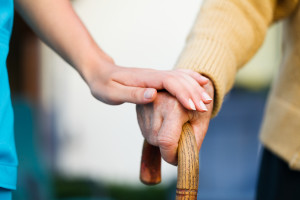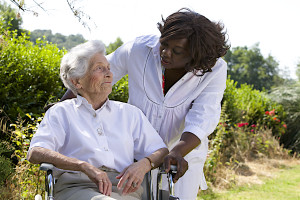Dementia is a general term for a decline in mental ability that interferes with daily life. In its broadest term it is deterioration in brain function that affects memory, communications, and behavior. The most common form of Dementia is Alzheimer’s Disease that accounts for an estimated 60 to 80 percent of cases.
Today, approximately five million Americans live with Alzheimer’s Disease. Although the great majority of cases occur in seniors over the age of 65, it can also occur at much earlier ages. Cases are expected to triple over the coming decades as the baby boomers age. Contributing to this growth is the fact that medical advances have increased life expectancy by curing or managing other diseases. According to the Alzheimer’s Association there are 10 warning signs of Alzheimer’s Disease.
Memory Loss. Forgetting recently learned information is one of the most common early signs of dementia. A person begins to forget recent events and conversations, which can manifest as asking same question over and over again.
Difficulty performing familiar tasks. People with Alzheimer’s Disease often find it hard to plan or complete everyday tasks. Individuals may lose track of the steps to prepare a meal, place a telephone call or play a game. As the disease progresses, they lose the ability to perform Activities of Daily Living- dressing, eating, personal care, etc.
Problems with language. People with Alzheimer’s disease often forget simple words or substitute unusual words, making their speech or writing hard to understand. They may be unable to find their toothbrush, for example, and instead ask for “that thing in my mouth”.
Disorientation to time and place. People with Alzheimer’s disease can become lost in their own neighborhoods, forget where they are and how they got there, and not know how to get back home.
Poor or decreased judgment. Those with Alzheimer’s may dress inappropriately, wearing several layers on a warm day or little clothing in the cold. They may show poor judgment about money, like giving away large sums to telemarketers omeprazole otc.
Problems with abstract thinking. Someone with Alzheimer’s disease may have unusual difficulty performing complex mental tasks, like forgetting what numbers are and how they should be used.
Misplacing things. A person with Alzheimer’s disease may put things in unusual places: an iron in the freezer or a wristwatch in the sugar bowl.
Changes in mood or behavior. Patients often become depressed, anxious and unsure of themselves. They can also show rapid mood swings, going from tears to anger for no apparent reason or become oppositional and aggressive. All of these make caregiving even more difficult, with the need for higher levels of care including institutional care.
Changes in personality. Alzheimer’s Disease can affect the frontal lobe of the brain, which is the seat of our personalities. Families are often confused and hurt when a previously gentle, caring and sensitive person becomes more selfish, hard to deal with and develops a childlike dependency. There can be more dramatic changes like paranoia, hearing voices and psychotic behavior.
Apathy, and Loss of initiative: Typically manifest with apathy and disinterest in people and events. Families report that the patient would be sitting alone in his/ her room during a Thanksgiving dinner. Alzheimer’s Disease makes it hard for people to comprehend and follow what is going on, so they withdraw from life. A person with Alzheimer’s Disease may become very passive, sitting in front of the TV for hours, sleeping more than usual or not wanting to do usual activities.
Alzheimer’s Disease is a progressive disease that researchers and physicians describe as seven stages that are often grouped into early/middle/late stages. Each individual may vary going through the stages from the absence of impairment in Stage 1, increasing to moderate Alzheimer’s in Stage 5 and then severe Alzheimer’s, in Stages 6 and 7, that may require around the clock care.
If you notice any of the early signs in your loved one, it is essential that a physician evaluate his or her status as soon as possible. There are a number of other diseases that could cause memory loss. Some of these may be treatable or reversed if caught early.
Alzheimer’s poses many, many challenges for family members, friends, and our society as a whole. Early detection allows time to prepare for the future and building the right care team. Help is available through the Alzheimer’s Association. The 24/7 Help-Line number is 1-800-272-3900.




